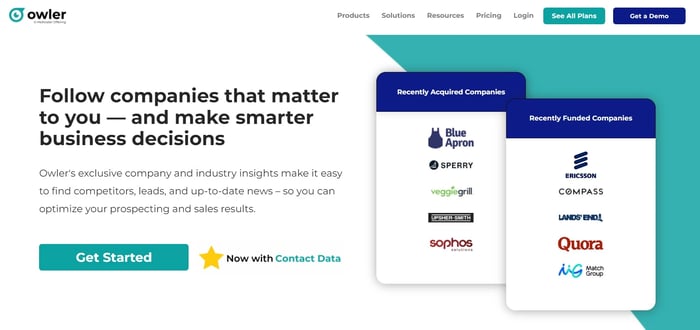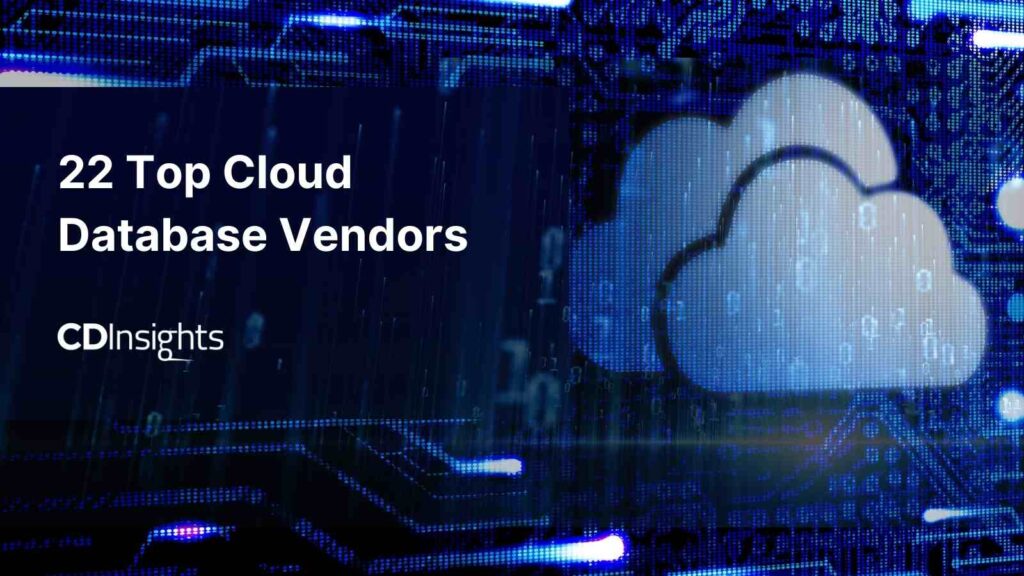Contrasting Popular Database Providers: Functions and Pricing
Contrasting Popular Database Providers: Functions and Pricing
Blog Article
Trick Features to Seek When Selecting a Data Source Supplier
Selecting a database company is a critical choice that can substantially affect your organization's information and procedures administration approach. Among the crucial functions to consider are scalability alternatives, which make certain that your system can adjust to expanding needs.
Scalability Options
When picking a data source supplier, comprehending scalability options is important to ensuring that the selected option can accommodate future development. Scalability describes the ability of a data source system to expand its ability and efficiency in action to raised need. There are two main kinds of scalability: upright and horizontal.
Vertical scalability, or "scaling up," includes enhancing a single web server's sources, such as CPU, RAM, or storage space. This method can be economical and uncomplicated for smaller applications yet may reach a limitation where even more upgrades are also expensive or impractical.
Horizontal scalability, or "scaling out," involves including much more servers to disperse the load. This method allows for higher versatility and can accommodate significant boosts in data volume and user traffic (database provider). It is particularly beneficial for cloud-based database solutions that can dynamically allot resources based on demand

Safety And Security Procedures

When reviewing protection procedures, take into consideration the execution of security protocols (database provider). Data-at-rest and data-in-transit security are important to make certain that delicate information continues to be secured, also in the event of a protection violation. Furthermore, seek companies that supply solid authentication devices, such as multi-factor verification (MFA), to better boost gain access to control
Normal protection audits and compliance with sector requirements, such as GDPR or HIPAA, are indicative of a supplier's dedication to information defense. Additionally, ask about their case feedback strategy; a durable strategy can lessen the influence of any kind of possible protection occurrence.
Performance Metrics
Evaluating efficiency metrics is essential for organizations to make sure that their picked database service provider meets operational demands. Trick efficiency metrics consist of action throughput, time, and scalability, which collectively figure out the effectiveness of data source operations under differing lots.
Reaction time is crucial, as it mirrors just how swiftly the database can refine inquiries and return results. Organizations must look for metrics that show ordinary reaction times during optimal and off-peak hours. Throughput, commonly determined in purchases per 2nd (TPS), gives understanding into the database's capability to deal with high quantities of requests without performance deterioration.
Scalability evaluates the data source's capability to expand with the organization's needs. A durable data source copyright need to show straight and vertical scaling abilities, permitting smooth changes as demands fluctuate. In addition, recognizing latency, especially in dispersed systems, can help organizations assess the responsiveness of the data source throughout different geographical places.
Consumer Support
Dependable customer assistance is a keystone of reliable database management, supplying companies with the aid needed to deal with issues and maximize efficiency. When picking a database company, examining the degree of client support they supply is necessary. A robust see here support system need to include multiple networks of communication, such as phone, email, and live conversation, making certain that users can access aid whenever they require it.
Furthermore, receptive assistance groups that are offered 24/7 significantly enhance the integrity of the database service. Motivate feedback times and reliable resolution of issues can dramatically reduce downtime and increase total productivity. It is also advantageous to think about the accessibility of go dedicated assistance workers, that can provide tailored aid based upon a company's certain demands.

Prices Framework
When taking into consideration a data source company, the rates framework is an essential variable that can considerably affect a company's budget plan and total strategy. A clear and versatile prices version is essential for straightening the database sets you back with service demands - database provider. Organizations must review whether the pricing is based on intake, per user, or a level price, as each design can yield various financial implications over time
It is necessary to analyze any extra expenses connected with the service provider's services, such as information storage space costs, purchase prices, and assistance fees. Some service providers might supply tiered rates, permitting scalability as the organization expands, while others may impose rigorous limitations that could come to be expensive as data demands increase.
Moreover, companies need to think about the lasting worth of the database solution. While lower first costs can be appealing, they might not represent future upgrades, upkeep charges, or combination expenses. Carrying out a complete cost-benefit analysis will assist identify one of the most appropriate prices framework that stabilizes efficiency, scalability, and assistance, eventually making certain that the chosen data source service provider lines up with the organization's economic and functional objectives.
Final Thought
In verdict, selecting a database company necessitates careful consideration of different essential features. Scalability alternatives ensure adaptability to future growth, while robust safety and security procedures protect sensitive information. Assessing efficiency metrics makes it possible for the recognition of efficient data sources, and accessible customer assistance boosts the general user experience. A clear click to find out more rates framework even more adds to educated decision-making. By extensively analyzing these variables, organizations can make strategic choices that straighten with their lasting objectives and operational demands.
Choosing a database copyright is a critical choice that can substantially impact your organization's data and procedures management method.When picking a database service provider, recognizing scalability choices is important to making sure that the picked option can fit future growth. When selecting a data source copyright, assessing the level of client assistance they offer is important.When thinking about a data source copyright, the pricing structure is an essential aspect that can substantially affect a company's budget plan and overall technique. Performing a comprehensive cost-benefit evaluation will help recognize the most ideal rates structure that balances scalability, support, and efficiency, ultimately making certain that the picked data source service provider aligns with the company's functional and financial goals.
Report this page